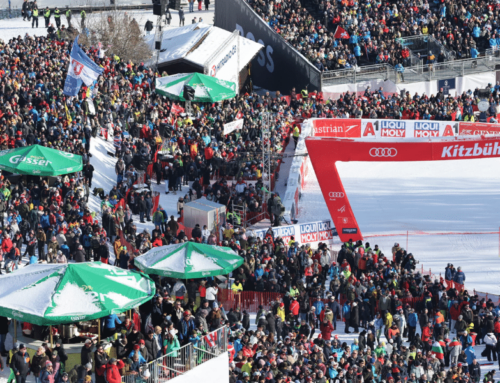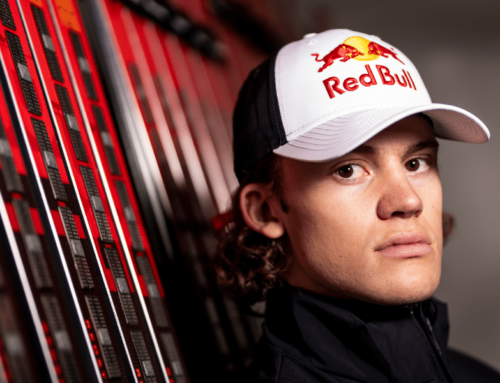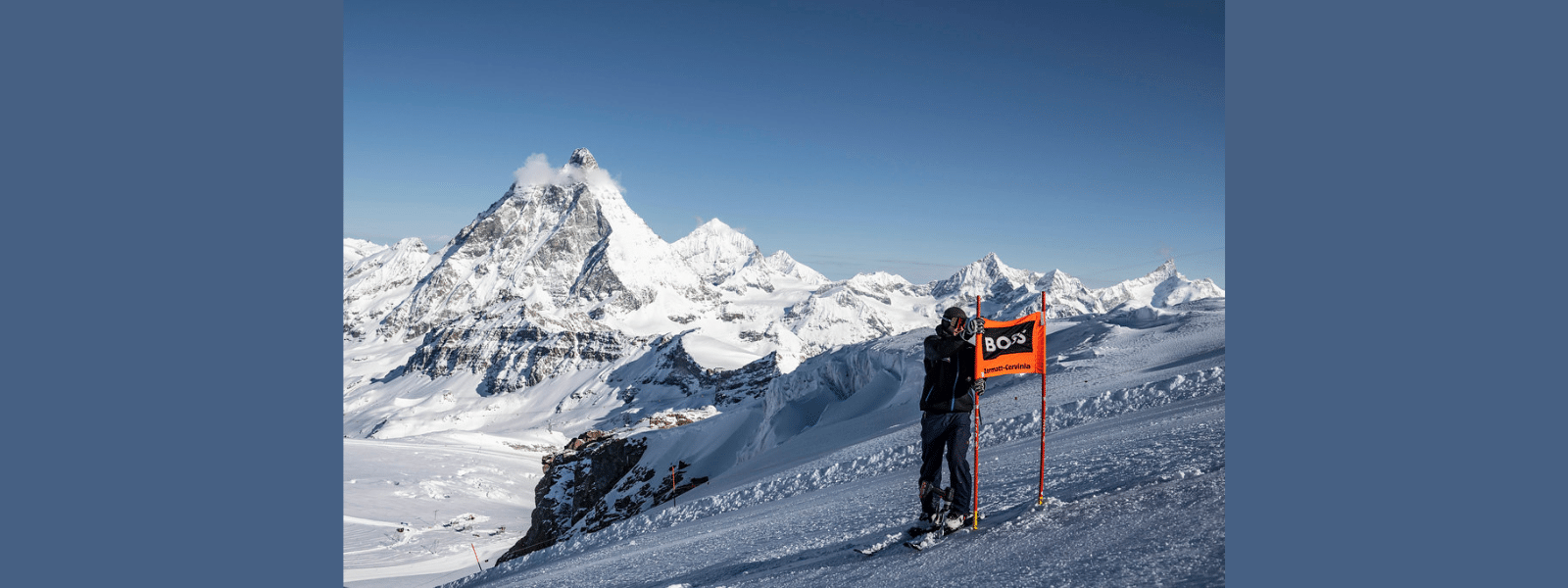When Being a Team May be the Key to Individual Success
The Team Event wrapped up the 2018 Olympic Winter Games by reminding the world who dominates alpine skiing: Switzerland and Austria, who won gold and silver respectively and have been passing down a legacy of national sport pride and performance from generation to generation. Norway, in bronze, developed a tight-knit, highly effective team that offset the younger ski racing culture. France was fourth, followed by Italy in fifth. Strong teams induce strong individual champions, yet the opposite doesn’t always hold true.
Like it or not, the bottom line of any Olympics is the medal count. Each federation will evaluate their team and staff performance based on that, but it may also be worth looking at more than just the medal count and consider how sustainable each nation’s growth is and what the different approaches look like. Considering the team performance is a good way to gain insight to that.

Clement Noel of France and Ramon Zenhaeusern of Switzerland go head-to-head in the Team Event at Yongpyong Alpine Centre.
Once again, the Olympics turned out to be anyone’s game, and those who bet everything on the racing superstars may be slightly disappointed. They missed out on the best part of ski racing: knowing that at the start, there are no winners and no losers. There are, though, some nations that always pull a rabbit out of the hat, or multiple ones, even when the superstars forfeit. When Marcel Hirscher skied out in his best event, Austria’s flag was still on the podium with Michael Matt in third. This is no abracadabra trick, but the result of a structured work done at the team level rather than at an individual level. Switzerland’s trusting, team-oriented work over the last five year paid off in these Olympics with a lot of young medalists and a very homogenous and talent-dense team. The cold-blooded Vikings from Norway came to the Olympics with 11 skiers and walked away with seven medals. Talk about conversion rate.
The French ski team advocates for a team spirit and focus, both within alpine skiing and across different disciplines. They have even given it a name to rally around and identify with; the esprit bleu, or the blue spirit.
“In this Olympics, I discovered the team spirit,” said Simone Del Dio, coach for the French men’s tech team (though slalom obsessed).

Marcel Hirscher of Austria wins the gold medal, Alexis Pinturault of France wins the silver medal, Victor Muffat-Jeandet of France wins the bronze medal during the men’s alpine combined in Pyeongchang. // Image Credit: Christophe Pallot/Agence Zoom
Del Dio has experience with other national teams as he was the coach for the Italian ski team during the Sochi Olympics.
“The guys were very engaged in other sports. We went to watch and support France in other disciplines, and had dinners with our ice teammates,” said Del Dio, who admitted being surprised by that. When asked whether this approach works or not, Del Dio said “At the end of the day, in ski racing what counts are results. Though, I can tell you that I loved sharing moments with other coaches and athletes and it was something I never experienced.”
French men arguably got results: one silver and two bronzes, and four athletes in top seven in men’s slalom. Del Dio examines the difference between being a team and forming a group.
“We don’t call it team, we call it group,” he said. “For me, a team is the formation that goes on the field at a soccer game. We are rather a group that works together and does an individual sport. The strength of the group lies in helping each other out in the darkest time. In a group, there is always somebody that cheers the spirits up and shifts the focus away from pressure and tiredness.”
Skiers who score big results are also helpful for the group as they provide a performance point of reference for the teammates, he argues.
“The goal of the group is to make sure every athlete gets to the race day feeling one hundred percent. Then, there is always the best and the guys know that.”
In this regard, the Team Event wasn’t only a great entertainment, but a test of team performance in ski racing.
“The Team Event is the only time we are on the field as a team,” said the French coach. France took this event seriously with the national federation taking a harsh stance on skier Mathieu Faivre. The GS specialist, who finished second in the 2017 World Cup GS standings, voiced his frustration right after a disappointing seventh place at the PyeongChang GS and said he did not care about the Team Event. The French Olympic committee, CNOSF, (equal to the USOC) along with the head coaches decided to proceed with other athletes for the Team Event, even after Faivre publicly apologized for his hot statements.
“It was a strong message. It was to say that here, we are not afraid of making decisions,” said Del Dio. “Although he just voiced what many athletes think, that wasn’t the best way or time to say it and it wasn’t nice to the rest of the group.”
France’s team show didn’t end there. The real hero was slalom specialist Julien Lizeroux, a veteran on the team, who was selected for the Olympic Team to compete only in the Team Event. The straight course and easy terrain of the dual slalom demanded a double cross-blocking that favored taller skiers. The not-so-tall Lizeroux, after few practice runs on race morning, recognized this technical challenge and convened to give up his spot to taller teammate Clement Noel, young talent born in 1997.

Adeline Baud Mugnier of France, Alexis Pinturault of France, Tessa Worley of France, Clement Noel of France during the Team Event. // Image credit: Alain Grosclaude/Agence Zoom
“It was a beautiful gesture,” said Del Dio. Not enough, Lizeroux spent his morning at the start cheering and helping his teammates who were competing. “I was shocked. Usually when athletes don’t compete they are in the finish area wearing sweat pants with sneakers on, not at the start with ski boots.”
Lizeroux, born in 1979, had his debut on the World Cup in 2000, when Noel was just three years old. According to Del Dio, one of the biggest challenges of a team is the age difference; he admitted being initially concerned having young Noel alongside Lizeroux, Jean Baptiste Grange (’84), Thomas Fanara (’81) and all the long-lasting French athletes. The 18-year difference between Lizeroux and Noel was filled without words but a selfless gesture. Noel, who became the World Junior Slalom Champion just before flying to South Korea and was just four hundreths of a second shy of the Olympic podium in slalom, was able to integrate nicely with the rest of the team. Del Dio highlighted Noel’s intelligence and the set of experiences he’s had at just 20 years old.
“Noel has been a sponge with his older teammates, taking something from everybody yet coming into the team with an already-formed personality,” said the coach. Age is, after all, just a number and the French didn’t let it become an issue. “Lizeroux and Noel mutually benefitted from each other. We put the relationship on a funny note, arguing that age is mental and that Lizeroux is the team’s youngest at heart. We joked that finally Lizeroux found his buddy to play: he is one that does every sport and it is hard to keep him in his room in the afternoon.”





















